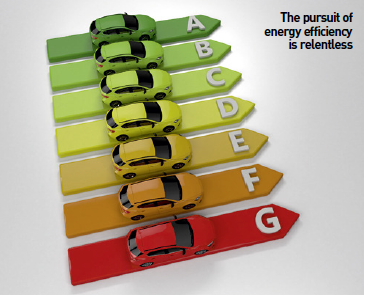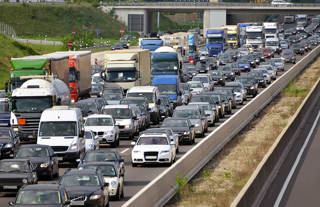Most companies have vehicles that travel into urban environments at some time or other and all of these will be affected by the relentless pace of change in urban transport policies.
The UK’s cities are under pressure.
Each is tussling to attract inward investment by companies and that means creating an environment that is appealing to potential staff. Where the people go, the companies often follow.
Urban transport policy, the buzz phrase for metro mayors and combined authorities, is intended to tackle four key areas: air quality (the topic receiving most of the media attention due to the poor performance across the UK), congestion, safety and public health.
People want to reclaim the streets, although they also want to receive their deliveries promptly to the doorstep. The dichotomy of interests does not go unnoticed by those in positions of power, but the onus will be on companies to find solutions that comply with city objectives.
While a number of cities are required to introduce clean air zones over the next couple of years, all are looking at ways to reduce traffic levels. Hence their heavy investment in trams, extensions to train lines, the creation of cycle routes, promotion of walking and car share schemes and pilots for ride-hailing apps.
Examples include Manchester, which is investing in sensing trams, guided bus lanes and ride sharing, and Oxford, which has launched a PickMeUp app for on-demand ride-sharing minibus services, as well as considering innovative solutions such as ‘micro-metro’ narrow bore tunnels for deliveries and journey comparison apps.
Leasing companies predict urban policies will require a substantial overhaul to fleet policies over the next few years, although the imminent introduction of clean air zones (CAZs) is seen as one of the least significant factors.
Lex Autolease says fleets who lease vehicles “have little to fear” from CAZs, as typical replacement cycles ensure the cars on policy are usually the cleanest available for the role.
“Our advice for companies is to transition as soon as possible all Euro 5 vehicles to Euro 6 where financially feasible, and closely monitor the introduction of RDE2-compliant diesel cars,” says Lex. “This is in addition to pursuing the transition to plug-in vehicles with more PHEVs where appropriate and assessing the viability for pure electric cars and vans.”
Future proofing policies has never been more important, with leasing companies increasingly called on to offer advice to their customers, according to Arval.
UK managing director Miguel Cabaca says typical conversations with fleet customers cover a broad range of subjects, although “hot topics at the moment include WLTP, new vehicle technologies and the emergence of CAZs”.
On the facing page leasing companies offer their advice on urban policies and how fleets should be preparing for imminent change.
Lex Autolease
Fleets who lease cars and vans have little to fear from clean air zones and other air quality legislation as typical replacement cycles ensure that cars on fleet policy are often the cleanest vehicles on UK roads.
Our advice for companies is to transition as soon as possible all Euro 5-rated vehicles to Euro 6 where financially feasible, and closely monitor the introduction of RDE2-compliant diesel cars.
This is in addition to further pursuing the transition to plug-in vehicles with more PHEVs where appropriate and assessing the viability for pure electric cars and vans.
With the range increases for pure EVs, battery costs reducing and with more affordable vehicles coming to market, there will be greater opportunities to transition to zero emission technology.
Organisations will also need to reconsider routes and operating cycles to avoid CAZs and, therefore, the ‘last mile’ may need to be a greener one.
David Bushnell, consultant, Alphabet
The direction of travel towards ultra-low and zero emission mobility, particularly in urban areas, is clear from local and national government.
What isn’t so clear is the time frame for this transition. 2030 is only three change cycles away for fleet decision-makers.
Fleets have led the way over the past decade in terms of reducing vehicle CO2 output and with the adoption of electrified vehicles.
Most fleet decision-makers want to go down the route towards ultra-low and zero emission travel but it requires support from government in terms of grants and BIK taxation to help fleets and their drivers to do the right thing.
Fleets also have to consider their care of duty obligations as well as ensuring their vehicle policies are equitable for employees and help to recruit or retain talent.
Matt Dale, head of consultancy, ALD
Currently, the main driver of urban transport policies is some form of CAZ and fleets need to be aware that these are coming.
This doesn’t just affect where a business is based, but also where its customers are.
There are more than 40 towns and cities in the UK currently assessing their CAZ options and this is likely to lead to charging particular vehicles entering these zones.
Emissions are the standard measure being used by most cities, so fleets need to start planning now and not leave it until these zones are implemented. Euro 6 diesel and Euro 4 petrol appear to be the levels vehicles will need to be in order to enter these zones.
But, in time, it’s possible that sub-50g/km or even pure EVs will be the only exempt vehicles.
Start looking at your fleet now and look at where you can run low CO2 vehicles. Understand how many Euro 5 diesel cars and vans you may have and look at updating them sooner rather than later.
If charges are similar to London, £12.50 per day will quickly escalate.
Jon Lawes, MD Hitachi Capital Vehicle Solutions
We’re advising our customers how to cope with the adoption of coming ULEZs, especially in London next April, and the requirement to adapt to Euro 6 or qualifying vehicles to avoid significant charges.
We are working closely with customers to review their current fleet’s emissions and put in a replacement programme with AFVs to combat any charges associated with ULEZs.
One way of adapting is by renewing vehicles early to swap out ‘dirty’ vehicles for cleaner ones to reduce costs. We are also working to reallocate those vehicles to other parts of the country where they won’t incur fines in the next two-to-three years. This is a key strategy that we’re adopting around urban transport policies.
Lee Hamlett, commercial director, Inchcape
Multiple congestion charge zones and inconsistency with policy and costs across cities require consideration by national operators to ensure their fleet is compliant, or they budget for the additional costs.
Our recommendation is to replace old technology vehicles with new and to potentially shorten contract terms, so as not to be locked into older technology for too long and to be able to access/leverage the latest technology earlier.
Simon Hill, CEO, Total Motion
Many fleets want to try to use alternative mobility, but it’s not yet joined up enough to be a real alternative to the car unless in large cities.
Our clients are considering hubs, electric bikes and public transport but so far they are mainly pilots. It will make life harder for everyone and increase costs significantly.
Paul Walters, MD, JCT600
Companies will have to look at low emission vehicles and alternative transport options.
Sandicliffe Motor Contracts
Potential to affect retail trade with a knock-on effect to their associated suppliers. It (urban transport policy) may well create confusion and uncertainty around what new fleet policies will look like. It’s in danger of creating significant costs incurred by fleets.
Keith Townsend, MD, Agility Fleet
Urban transport policies will take drivers out of company vehicles. They will chose vehicles based on BIK.
Alan Carreras, director, Bridle
The need for more flexible solutions will increase.
Fleet & Distribution Management
ULEZ is the sharpened edge of legislation against vehicles in London. Other urban centres and cities will follow – some using parking charges to lessen the appeal of entering cities. Vehicles are unwelcome in some areas yet the environment remains congested and full of carbon monoxide.
Duncan Chumley, Free2Move
Vehicle choice, vehicle use, mobility in general will all be affected. Our advice is to choose a strategic pattern with intelligent mobility solutions. Furthermore, leasing could be an ideal solution as customers can utilise solutions without ownership commitments.
Miguel Cabaca, Arval UK managing director
Fleets are operating in changing times, and changing legislation and regulation will impact many businesses. Because of this, fleets need to be future-proofing their own policies and to do this effectively they will need expert advice. This is where our customers lean heavily on us to give them a clear and considered view of current government policy, what’s coming, and how to deal with it. These conversations can cover a broad range of subjects but hot topics at the moment include WLTP, new vehicle technologies and the emergence of Clean Air Zones.
Steve Whitmarsh, MD Multifleet
These changes are going to have a huge impact on fleet policies, and will necessitate the uptake of alternative fuelled vehicles (AFVs). Our advice is to accept that change is inevitable and try emerging technologies – especially on an extended demonstrator programme where available.






















Login to comment
Comments
No comments have been made yet.